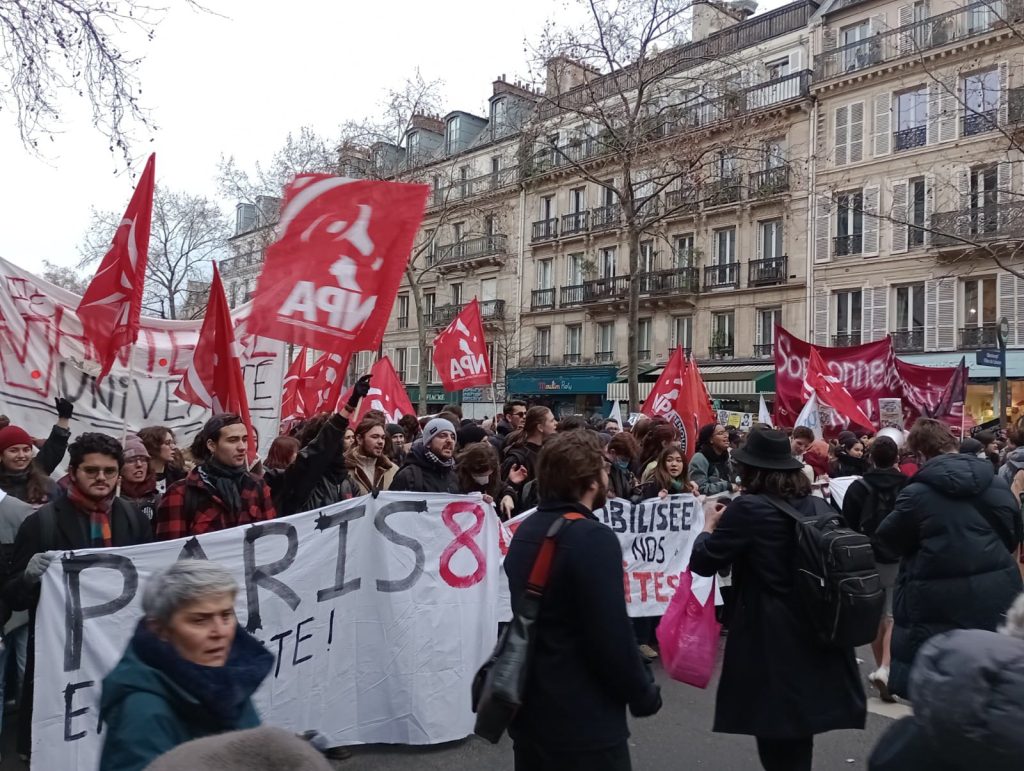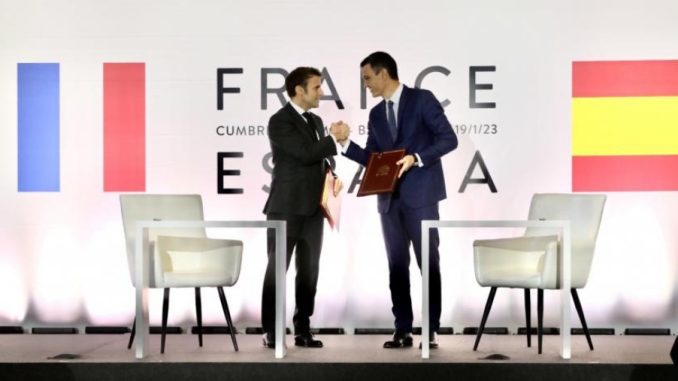
By Rubén Tzanoff
At the Spanish-French meeting they put into practice a two-pronged move with the intention of forming a new European axis and recovering some of the support lost in their countries. In tandem they act against Catalan self-determination. At the opposite extreme they are challenged by the struggles. A strategic way out is needed to turn everything around.
A convenient friendship
The Spanish and French presidents met at the National Art Museum of Catalonia (MNAC). There they agreed on a common strategy to strengthen the European Union in the face of the crisis it is going through and in an effort to regain ground against China and the U.S. Cooperation in security, education, connectivity and transport. They will create a bilateral Defense and Security Council and an Interior group to address migration issues. Every three months, a Spanish minister will participate in a weekly meeting of the French government and vice versa. They are oriented towards strengthening themselves economically, politically and militarily within the framework of the EU and NATO.
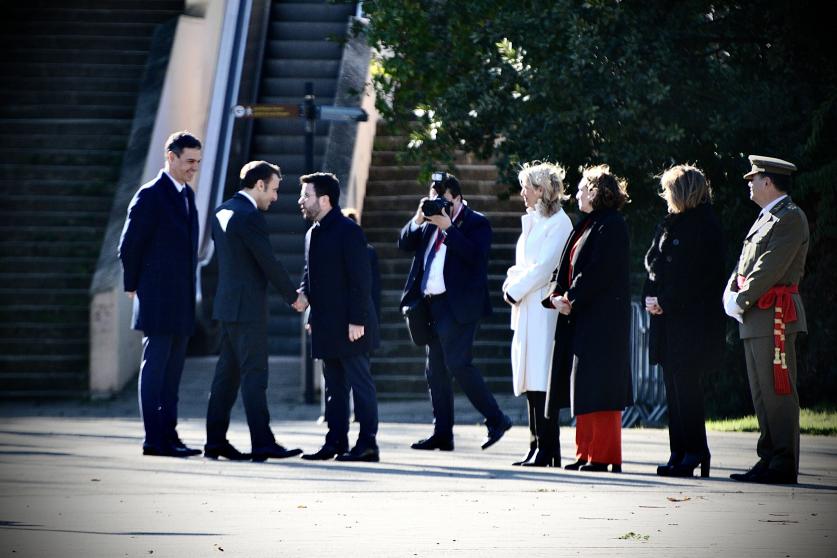
Closer ties for mutual convenience
The Moncloa and the Elysée are also seeking oxygen for their battered administrations. From the deterioration in the relationship with Germany, Macron urgently needs to get new allies. He also needs to appease the electoral setback and the effects of the popular rejection it generates. Sanchez needs to accumulate merits to complete the legislature and face the electoral year with possibilities of success. His “hobbyhorse” rides on the attempt to demonstrate that “the process is over” and that normality has returned to Catalonia, that is why the summit was held in Barcelona.
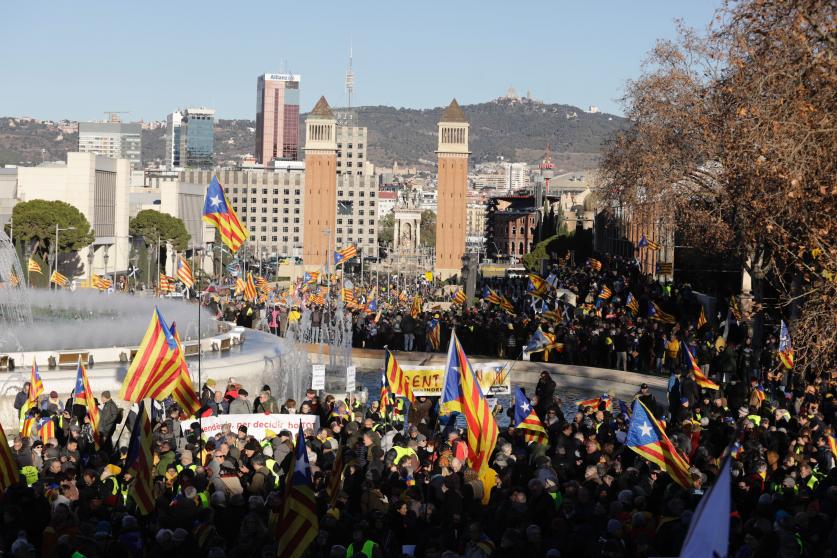
Complacent but questioned “Progressives”
President Pere Aragonès (ERC), Mayor Ada Colau (EnComúPodem) and the president of the Barcelona Provincial Council, Nuria Marín (PSC-PSOE) were the “progressives” who welcomed the oppressors. Aragonès had intended to participate in the summit, even if only as part of the decor. But the barrage of criticism he received pushed him to take charge of welcoming at a previous meeting, express some lukewarm democratic suggestions and withdraw. The ERC leader, Oriol Junqueras, who went to Montjuic as a demonstrator and had to withdraw because of the booing, shouting “botifler” and “out with the traitors of the Parliament”, did not fare so well either.
Gravediggers of 1-O
Sánchez’s provocations to the independence movement are possible thanks to the role played by the government (ERC-JxCat), with Esquerra at the helm. Together with the PSOE-Unidas Podemos “progressive coalition” government, they want to turn the page of 1-O with a deceitful “dialogue table” that does not debate neither self-determination nor amnesty. The “leftist” rhetoric of these sectors is a make-up for their intention to impose a limited autonomy to the regime of 1978 and capitalism.
In France, strike and mass demonstration
While Pedro Sanchez and Emmanuel Macron were showing their hypocrisy, the streets were expressing their mobilized dignity. In Paris the mobilization was massive, France experienced a successful day of protest against the extension of the retirement age proposed by the government. The strike had a strong impact, affecting refineries, schools, transportation, railroads and electricity production.
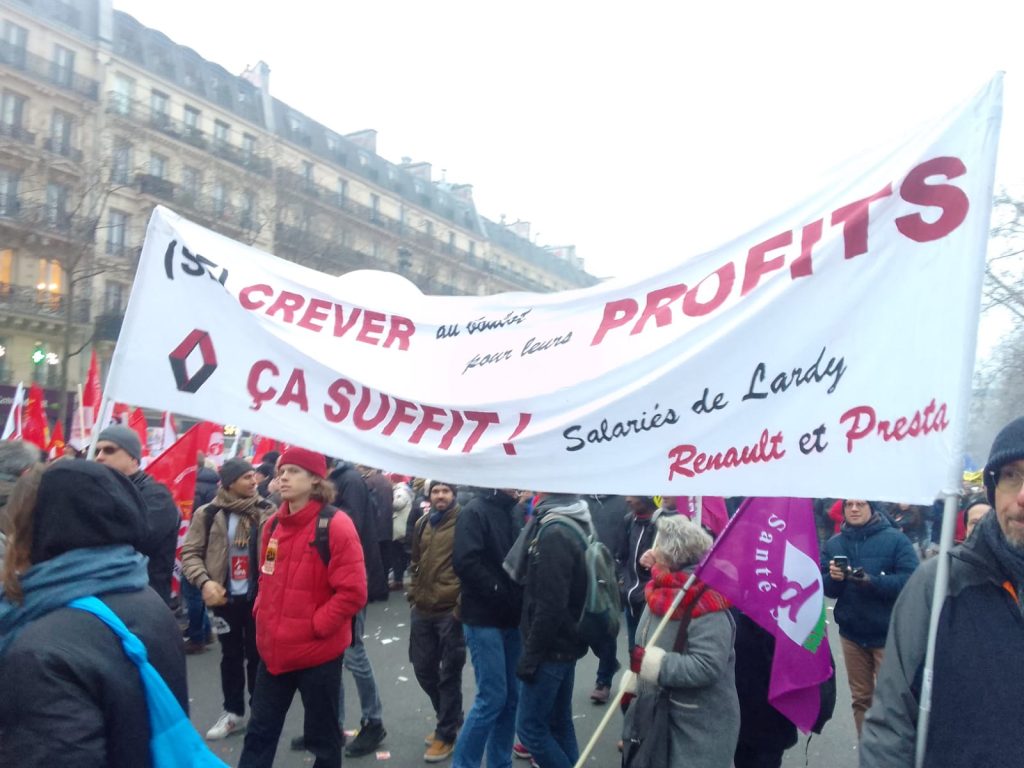
In Catalonia mobilization
The main demonstration was organized in Barcelona. It was called by the ANC, the Consell de la República, Òmnium Cultural, CUP and other organizations; under the slogan “Nothing is over here! Independence, Catalan Countries, enough of repression”. In front of the four columns of Puig i Cadafalch on Montjuïc, there was an important concentration with Estelada flags and yellow vests. It was also expressed at the French consulate, despite the batons of the riot police on the way.
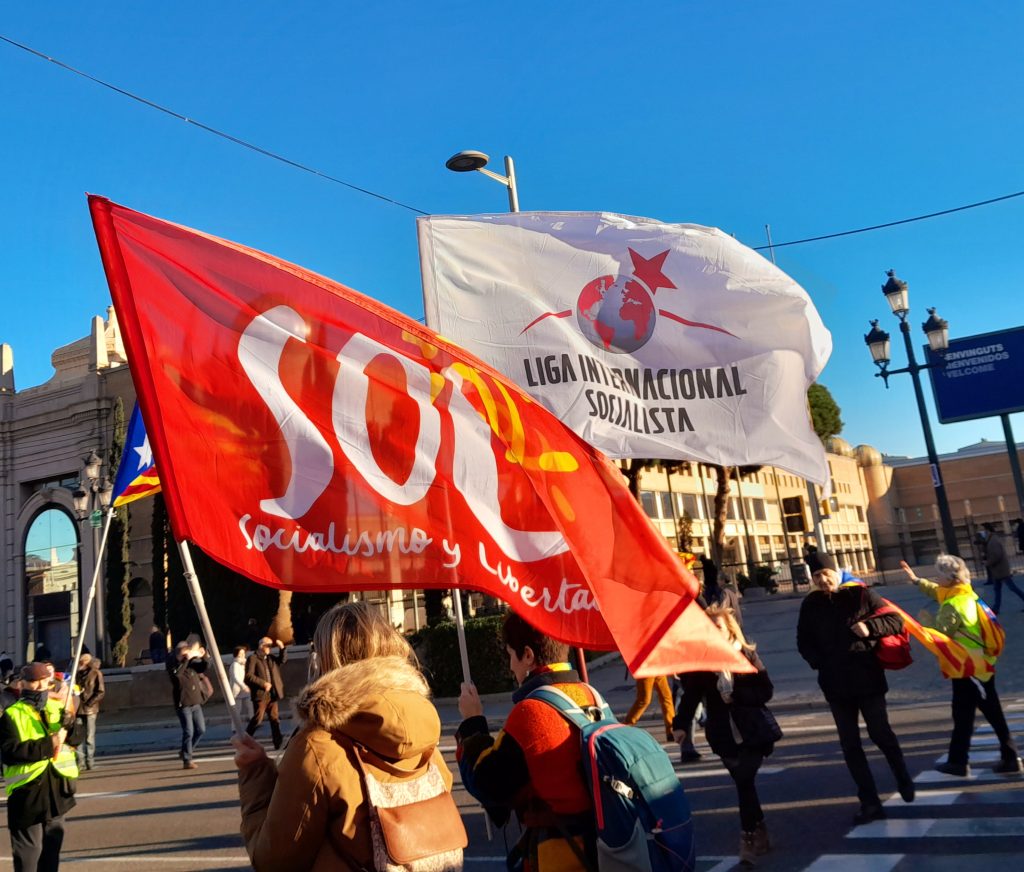
It is time to unite the workers and the mobilized peoples
As a consequence of the betrayals, the Catalan struggle has been weakened, but they have not managed to defeat it completely. It can be recomposed if it resumes the path of mass mobilizations, strikes and disobedience. To fulfill the mandate of 1-O, popular self-organization is necessary, new leaders and the formation of a radical left front, consistent in the struggle to break with the Spanish State. Achieving self-determination would be a big step forward, but still limited if it is not part of the strategic struggle for a workers’ government and socialism. The powerful are holding hands to further their own interests. It is time to unite the mobilized peoples to defeat the exploiters and oppressors, as we promote from the International Socialist League (ISL).
